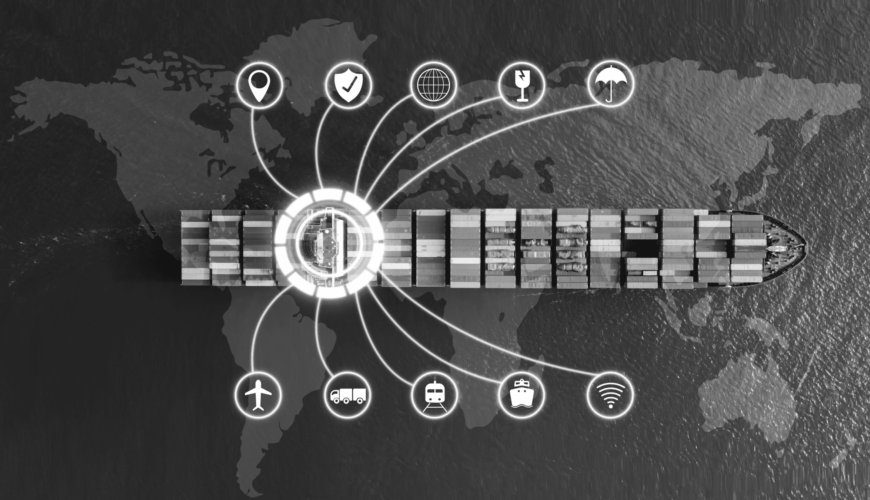Should your organization utilize centralized supply chain management or decentralize control across multiple regions and departments? Supply chain management has become a defining factor in how companies compete, adapt, and serve their customers. Once viewed as a back-office function, it now sits at the core of business strategy, shaping everything from cost control and customer experience to resilience and growth. The key question many leaders face today isn’t whether supply chain management is important, but how to structure it most effectively.
The answer depends on your size, complexity, and long-term goals. Understanding the strengths and trade-offs of each model is the first step toward building a supply chain that fits your business.
Centralized Supply Chain Management
In a centralized supply chain management structure, a single department oversees all major supply chain functions such as procurement, logistics, planning, and supplier management. This approach is often ideal for large or global enterprises with complex, interconnected operations.
Centralization brings efficiency through unified processes, greater purchasing power, and consistent standards across the organization. With a central team managing strategy and execution, companies can better leverage technology and data analytics to forecast demand, optimize inventory, and strengthen supplier relationships. It also provides leadership with clear visibility into the entire supply chain, supporting faster, data-driven decisions.
However, a centralized supply chain management model can sometimes slow responsiveness, especially in fast-changing markets. Local teams may feel constrained by corporate policies that don’t always reflect regional needs. Implementing the systems and oversight required for centralization can also be resource-intensive. For companies that rely heavily on agility and local insight, too much central control can become a limitation.
Decentralized Supply Chain Management
A decentralized supply chain management structure distributes responsibility among regional teams or business units. Each unit manages its own procurement, logistics, and planning processes, allowing for faster decisions and better adaptation to local conditions. This model is well-suited to smaller organizations or those operating in diverse markets with unique customer demands or regulatory environments.
Decentralization empowers teams to be more responsive, encourages innovation, and fosters stronger local relationships. When managed well, it can increase customer satisfaction and help companies move quickly in response to disruptions or shifting trends.
The challenge lies in maintaining coordination and consistency. Without shared systems or aligned processes, communication gaps can lead to inefficiencies, duplicated efforts, or higher costs. To succeed, decentralized organizations must prioritize transparency and collaboration, supported by modern tools that connect data and people across locations.
The Hybrid Model
Many companies today are adopting a hybrid model, combining the strengths of both centralized supply chain management and decentralized structures. Strategic functions, such as global procurement, compliance, and supplier management, remain centralized to maintain control and efficiency, while execution-based functions, such as logistics and regional fulfillment, are decentralized for flexibility.
Advances in technology make this balance more achievable than ever. Cloud-based platforms, integrated ERP systems, and real-time analytics allow businesses to maintain a single source of truth while empowering local teams to act quickly. This connected model supports both global oversight and local agility, creating a supply chain that can adapt to uncertainty and change.
Choosing the Right Structure
There’s no one-size-fits-all approach. The ideal structure depends on your organization’s priorities, maturity, and market dynamics. Large, complex businesses often benefit from centralization, while smaller or fast-moving companies may prefer decentralization. What matters most is alignment; your supply chain structure should reflect how your business actually operates.
Evaluating where decisions are made, how data flows, and how teams collaborate will help you find the right balance. Digital transformation is also changing what’s possible: modern supply chain technologies make it easier to achieve the control of centralization with the flexibility of decentralization.
The Road Ahead
The future of supply chain management will be defined not by rigid structures, but by connectivity. As global networks become more digital and interdependent, successful organizations will focus on integration, transparency, and collaboration. Real-time data, automation, and shared accountability are turning traditional supply chains into intelligent, adaptive ecosystems.
Whether centralized supply chain management, decentralized, or somewhere in between, the goal remains the same: to build a supply chain that is efficient, resilient, and capable of delivering consistent value in an unpredictable world.
OPSdesign helps organizations assess and optimize their supply chain structures to align with operational and strategic goals. Through data-driven analysis, we help companies reduce costs, strengthen collaboration, and prepare for the challenges ahead.
Contact OPSdesign today to start building a smarter, stronger, and more connected supply chain for the future.


